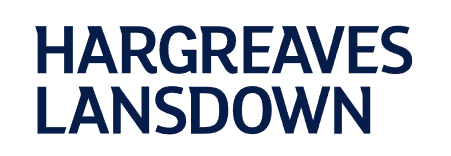When providing a lump sum of money to any financial institution, thoughts about its well-being will cross your mind. The most fundamental question is probably ‘Is my money safe?’. Whether you pick the best companies or the best funds to invest in will clearly play a big part in driving your account balance up or down. But what if the stockbroker itself mismanages your assets or collapses? This brings us to the question of whether stockbrokers are regulated, and if so, who regulates UK stockbrokers?
In this article, we’ll explain the regulatory environment for UK stockbrokers, who regulates them and what this really means for investors.

Who regulates stockbrokers in the UK?
UK stockbrokers are regulated by the Financial Conduct Authority (FCA). The FCA supervises all financial services businesses in the UK and the financial markets. Examples include:
- Banks, building societies & credit unions
- Consumer credit firms
- Financial advisers
- Investment managers (including stockbrokers)
- Wealth managers
- Life insurers
- Mortgage lenders
The FCA is an independent body that is funded through levies on the businesses in the financial sector. Its role is to protect consumers, enhance market integrity and promote competition.
Who are the best FCA-regulated brokers in the UK?
The best FCA regulated brokers according to our detailed and exhaustive reviews are listed below:
Trade shares with zero commission. Open an account with just $100. High performance and useful friendly trading app. Other fees apply. For more information, visit etoro.com/trading/fees.
Large UK trading platform with a flat account fee and a free trade every month. Cheapest for investors with big pots.
The UK’s no. 1 investment platform for private investors. Boasting over £135bn in assets under administration and over 1.5m active clients. Best for funds.
Youinvest stocks & shares ISA offers lower prices the more you trade! Which? 'Recommended Provider' for last 3 years.
Choose a pre-made portfolio in minutes with Nutmeg. Choose your level of risk and let Nutmeg efficiently handle the rest.
Buy and sell funds at nil cost with Fidelity International, plus simple £10 trading fees for stocks & shares and ETFs.
Capital is at risk
Trade stocks & options on the advanced yet low-cost Freedom24 platform that arms retail investors with the tools to trade like professionals.
Capital is at risk
Examples of stockbroker regulations
Permissions
The FCA requires all financial services firms to register with them and proactively seek ‘permissions’ to carry out various activities which a stockbroker may wish to undertake.
- Holding client money
- Advising on investments
- Arranging deals in investments
- Agreeing to carry on regulated activities
- Making arrangements with a view to transactions in investments
Each permission is obtained separately, through a process that checks if the firm has the rigorous processes and the expertise to carry out this function responsibly.
Our reviews of eToro and Hargreaves Lansdown make clear that these market-leading brands hold the relevant permissions from the FCA to practice stockbroking in the UK. AJ Bell, Dodl and Interactive Investor also hold all necessary permissions.
Responsible persons
The FCA handbook defines a series of key roles across financial services organisations which are labelled as controlled functions. Individuals expected to perform such roles must be vetted personally by the FCA before they can undertake their duties. A successful applicant is known as an ‘approved person’.
Money laundering reporting officer
One controlled function is the Money Laundering Reporting Officer or MLRO. All stockbrokers must appoint an MLRO, whose key responsibility is to create and monitor the anti-money laundering processes the firm has in place. The MLRO will also be personally responsible for compiling and sending any suspicious activity reports (SARs) directly to the National Crime Agency. This process has been in place since The Proceeds of Crime Act 2002 was passed in parliament.
Client money
Holding client money is a key FCA permission that any stockbroker will need to hold. Holding client money is a higher risk endeavour because of the risk of theft of funds or the funds being redirected or confused with the firms own cash.
The FCA has acknowledged this importance and has established a regime called Client Money & Assets (CASS). Firms that hold client money must follow the additional set of rules laid down in the Client Money and Asset Sourcebook and also make regular returns to the FCA.
In addition, the firm will likely need an annual client money audit (CASS audit) which is performed by a qualified and independent external auditor and results are reported directly to the FCA.
However, ring-fencing rules don’t provide an absolute guarantee. An unscrupulous broker could still knowingly breach the rules. Also in 2018, a little-known rule came to light as a result of the collapse of Beaufort Securities. In this case, the administrator (pwc) was able to properly use client fees to pay their own administration costs.
FSCS payments
As well as paying dues to the FCA, Stockbrokers will also pay a levy that funds the Financial Services Compensation Scheme (FSCS). The FSCS is monitored by the Prudential Regulation Authority (PRA), a branch of the Bank of England. The FSCS scheme will payout some compensation (typically up to £85,000) to clients who lose money as a result of their financial provider collapsing.
This is a scheme of last resort and could be utilised if ring-fencing was insufficient protection against client losses when a firm fails.
The scheme was been used in the past for the failures of retail banks, such as Iceland’s Landsbanki and Kaupthing which had operations in the UK that failed during 2008. An estimated £4 billion of compensation payments were made to UK savers in respect of the Icelandic banking crisis.
Topical issues
The FCA regulates engages committees to perform thematic reviews of the industry and look out for bad behaviour or changing trends.
An example of this is the FCA’s 2019 report on Payment for Order Flow. Payment for order flow is where a stockbroker provides its trades or information about its trades to a paying third party broker or hedge fund, who may then enter into trades in their own right using this information to generate profits.
Large orders move markets, therefore having advance warning of orders which have yet to hit an order book is valuable information.
Where a third party utilises order flow information, the market price of an asset will generally rise before a client buy order is executed, or fall before a sell order is executed. The price will move against the client.
Payment for order flow is regarded as a conflict of interest for the broker because the broker is being paid to manage their users trades in a way that will not achieve the best execution for the client.
The 2019 FCA report monitored this practice and concluded that following its stern warnings to brokers in earlier years, the practice had been largely abandoned by stockbrokers.
Other investment platforms and exchanges
The FCA also regulates other investment platforms and financial institutions such as crowdfunding platforms like as Funderbeam.
Who regulates stockbrokers: A summary
- Stockbrokers are regulated by the FCA. The FCA orders firms to register with them and follow a series of rules in their Handbook.
- Key positions in registered firms are individually vetted by the FCA to ensure that the individual has the experience, competence and integrity to carry out the position.
- Stockbrokers are required to ring-fence client assets from their own, and arrange independent client money audits to verify that processes are in place to manage client money.
- Brokers must also pay into the FSCS levy which could compensate clients in the case that their firm fails.






